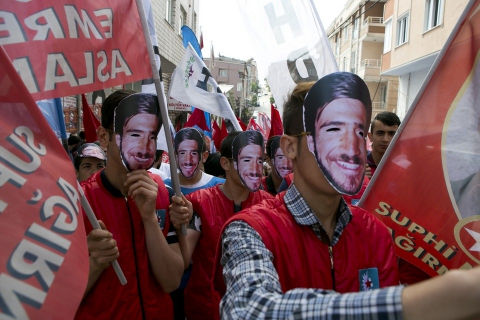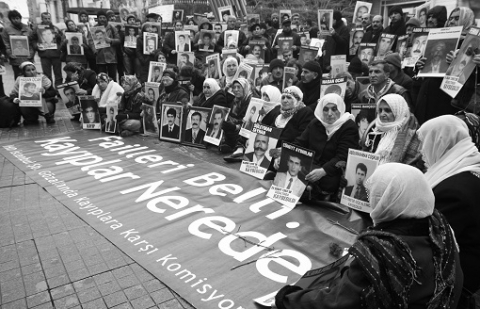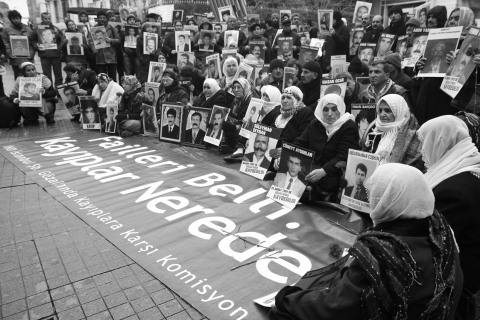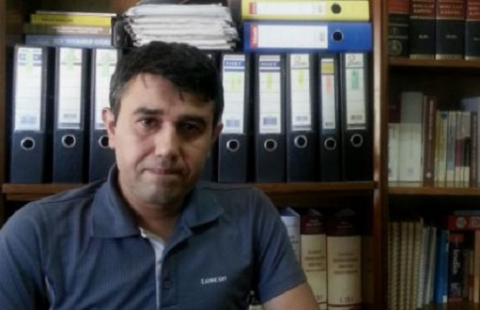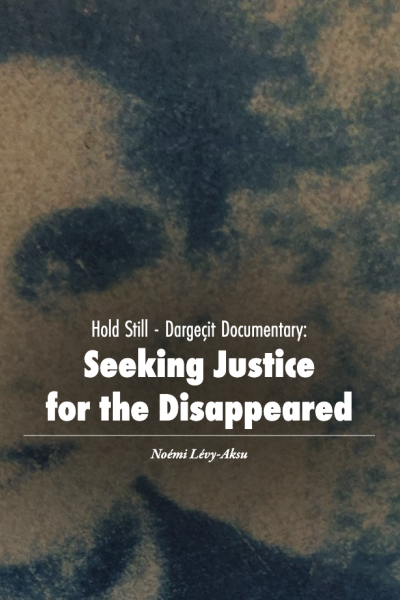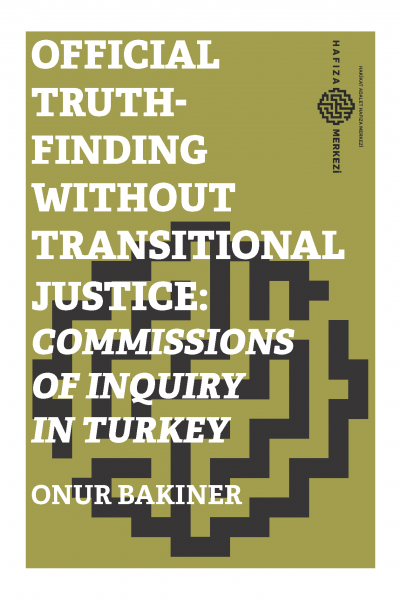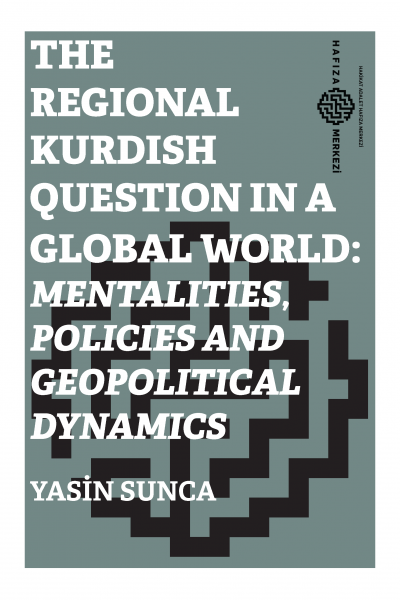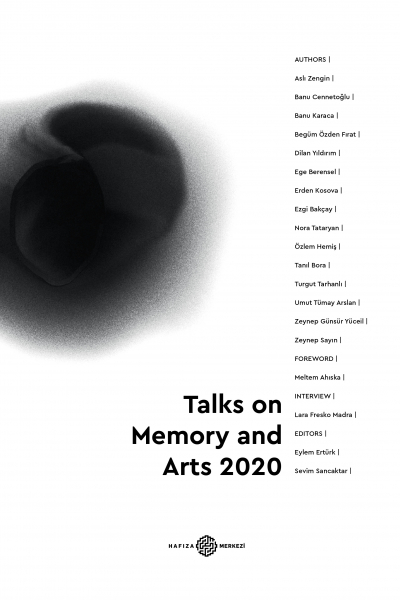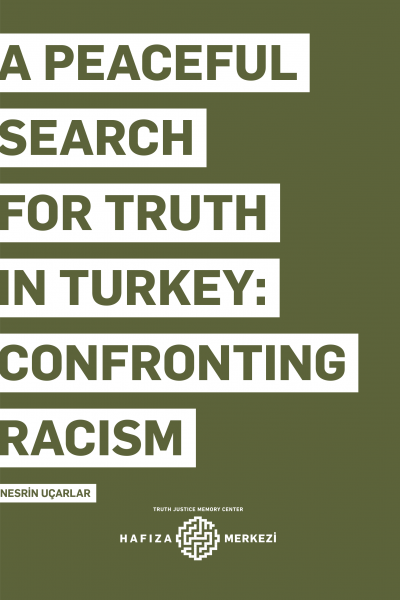
Galatasaray Square: A recognized memory space
30th of August is commemorated as the international day of the victims of enforced disappearances. The Saturday mothers who have been holding regular vigils for the forcibly disappeared were again banned from commemorating the victims at Galatasaray Square in Istanbul in the 800th week of their vigil. Since their 700th weekly vigil, the Saturday People have come under heavy pressure and are not allowed to gather at Galatasaray Square, while facing investigations launched against them. On 25 July 2020, the day that marks the 800th week of their vigil, the Saturday People were once again not able to access the square. Wanting to put down carnations in the square, their representatives were detained. We talked to Gülseren Yoleri, Head of Human Rights Association’s Istanbul Branch, about the struggle that has been going on for 25 years, the demands of the relatives of the disappeared, and Galatasaray Square as a space of memory.
30th of August is the international day of the victims of enforced disappearances. The Saturday People’s vigil has passed its 800. week. What is the situation today for the forcibly disappeared?
Of course, there have been important achievements regarding the forcibly disappeared in the course of a struggle that has been going on for more than 25 years. Shortly after this systematic struggle had begun, the number of people disappeared in custody started to decrease, and towards the end of the 90’s it became possible to prevent the crime of disappearance in custody. This was an important achievement. Subsequently, notwithstanding their eventual acquittal, perpetrators were brought to trial in the scope of the so-called JITEM cases. The bones of some of the disappeared were found. Another achievement of this struggle is that the state had to end its denial in the Cemil Kırbayır file after 31 years. But although the state was forced to stop committing these crimes at that time, it has once again returned to these practices in recent years. This should not be interpreted as a decline in the struggle but is perhaps better associated with the state becoming increasingly authoritarian and operating outside the boundaries of the law. As far as we are able to determine, about a thousand people disappeared in custody are still waiting to be found, waiting for justice to prevail.
What are the demands of human rights defenders and the Saturday People regarding the forcibly disappeared?
In one sentence, they want the disappeared to be found and the perpetrators to be punished. Under this general heading there are more specific demands, for example those for truth and justice and a coming to terms with the past. Emphasis is also placed on the protection of memory spaces and the prevention of enforced disappearance. Putting an end to impunity is another important issue. Likewise, it is key that Article 77 of the Turkish Criminal Code is rearranged so that it is in accordance with the Rome Statute’s definition of crimes against humanity and includes the crime of disappearance in custody is. There also is the demand that files are not closed due to the statute of limitations. Human rights defenders and the Saturday People further urge the government to ratify the UN’s International Convention for the Protection of All Persons from Enforced Disappearance and to adopt the Minnesota Protocol. Another important demand concerns the duly opening of the mass graves and identification of those buried there. Also, given that first degree relatives are growing old and pass away, there is a demand for the creation of a DNA bank to be used for identification purposes by those who wish to do so. And last but not least, the demand that spaces of memory like Galatasaray Square are opened to the Saturday People.
Back in 1998, the People of Saturday faced a severe ban like the one we have been witnessing since the 700th week, and at that time even had to suspend the vigils for a while. What kind of similarities do you see between the two periods in terms of the climate?
The relatives of the disappeared and the Saturday People faced heavy attacks almost every week between ‘95 and ‘98. There were detentions every week, their number exceeding hundreds. But people tenaciously continued the struggle. Some of the Saturday People were even forcibly disappeared at that time. And yet, they did not back down. However, after 30 weeks of much more severe attacks, the relatives of the disappeared decided to take a break from sit-ins and shift their focus to other means of struggle. Today’s repression and intolerance are similar to those of ‘98, but the fight against enforced disappearances is much more advanced and has gained much greater legitimacy in the meantime. Therefore, there are no discussions whether to suspend the Saturday protests, let alone proposal in that direction. All relatives of the disappeared continue to be insistent on these protests as much as on this struggle.
Although the spokespersons of the ruling party sometimes denounce the struggle in their statements, they are in fact also signaling that they consider the demands of the relatives of the disappeared to be justified in almost all face-to-face meetings. And during the meetings before the 800th week it was stated that the relatives of the disappeared surely had the right to lay down carnations in Galatasaray Square. However, when it comes to expressing opinions in public, the statements yield to official discourse.
Is it possible to evaluate the wave of restrictions, investigations and lawsuits against the Saturday People as the state’s return to the practice of enforced disappearance?
The state has always tried to criminalize this struggle. A large number of lawsuits and investigations were brought against the relatives of the disappeared. But we can of course draw a parallel between the state’s recent return to the practice of disappearance in custody and the increase in attacks against the Saturday People.
How many of the people who have attended the vigils and read out the texts since the 700th week have been facing investigation or prosecution? What are they charged with?
In this process, investigations were brought against those who read the texts, who gave speeches and who stood next to the reader. According to the information we received, apart from one investigation against 6 people, 4 more separate investigations were opened. To this we can add the investigations opened against those detained during the intervention in the protests.
Galatasaray Square is a space of memory built by the Saturday People. The square did not carry a memory of enforced disappearances in custody before. Should we worry about losing Galatasaray Square as a space of memory?
Galatasaray is a space of memory inscribed into people’s minds and hearts. The relatives of the disappeared also call it a place to meet with the disappeared. On Saturdays, at 12:00, the disappeared and their relatives as well as those who lost their lives while searching for them meet in this square. This is a strong feeling. That is why it is of such great value – and why it is impossible to lose the square spiritually.
It is actually a sign of despair that the state has been using heavily armed police, armored vehicles and barriers for more than 100 weeks to block the square. They too are aware of the spiritual value of the square. In banning the square, those disturbed by the fact that they are confronted with their crimes every week in the Saturday square have resorted to increasing the dose of persecution and torture inflicted on the relatives of the disappeared. But as it is repeated every week, this struggle will continue until the last disappeared is found and the last perpetrator is punished. At all costs.
